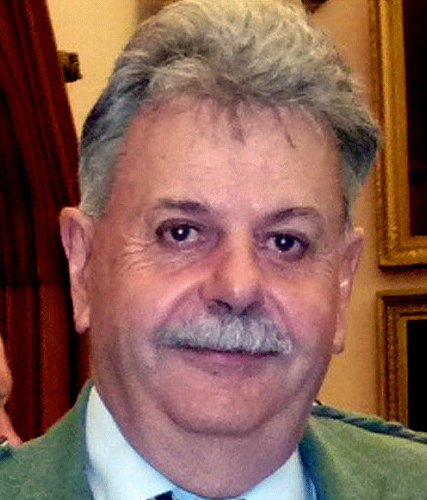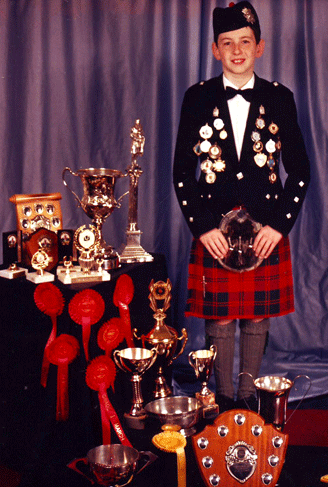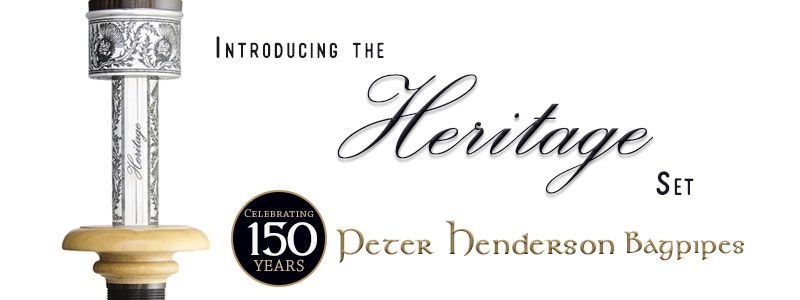 By Duncan Watson
By Duncan Watson
This year’s Ballater Highland Games gave us a day to remember for a couple of reasons. It started with a presentation to Norman Matheson MBE, a judge at Ballater for over 40 years. Norman has been a kenspeckle figure at the Deeside games, including Ballater and beyond, for, as indicated, over four decades.
In his professional life he was a consultant surgeon at Aberdeen Royal Infirmary. He was awarded the MBE for his involvement in a hospital art project to display pictures in hospital corridors and other suitable places, the aim being to take the starkness off the environment and make it more relaxing and welcoming for patients and visitors.
Of course Norman was also instrumental in the compilation of the ‘Masters of Piobaireachd’ CD series featuring the teaching of the ‘Bobs of Balmoral’, Robert Bell Nicol and Robert Urquhart Brown. Every discerning player of piobaireachd knows of this series. Bob Nicol spent his life in Royal Service and Norman had a close association with him for about 26 years. Undoubtedly this gives Norman a link to ‘Royal’ Deeside.
Well, with a bit of scheming we did get Norman to attend at Ballater a bit earlier than usual on the pretext that the organisers were to give us some information about the competition. Piping convenor, Mr Neil Cassie, had the adjudicators in a line as a motorcade entered the games field.
His Royal Highness Prince Charles alighted with his wife Camilla, Duchess of Cornwall, and both were introduced to the piping judges. This completed, Norman, to his surprise, was presented with a suitably engraved commemorative Ballater Plaque by Prince Charles on behalf of games committee.
The photograph above captures the moment. Quite a start to the day, but we were there to judge the competitions and so to work. Norman, Ronald Clark and I judged the piobaireachd, and James Hamilton and Dr William Fraser the light music.
The playing in the piobaireachd was very good and that is why I was minded to do this report. It was rather a pity that it had to be judged in fact as, despite the vagaries of the weather (warm with occasional rain), it was one of the best competitions I have heard in a long time. There were a range of tunes played, long and short, MacCrimmon tunes and one or two from the current set list. Perhaps more cognizance could be taken on tune size etc., but in a games competition the players’ choice of tunes is in their own hands.
Michael Laing got the competition off to a good start with The Glen is Mine. This tune is described in the Piobaireachd Society book as 'simple', but I have never found this to be the case. It is a challenge to get the best out of it and avoid it becoming wearisome. Michael's bagpipe was quite good but could have done with some finer tuning. The ground lends itself to significant shading of the phrase and line endings and this could have been done to greater effect. Variation 1 and doubling were similarly treated. Variation 2, in which F is introduced, was marred somewhat by the high A being too short and thus the ‘song’ of the tune suffered.
Matt Pantaleoni played The Kings Taxes. This was again a fairly good performance, but again the bagpipe was in needed a more refined sound. This became more evident later. The ground was well played. I found that there could have been greater expression in the first variation and doubling and this I think could have been achieved with a little more value on the notes before the grips etc, but of course not to be overdone.
James McPetrie played Lament for Captain MacDougall. Fairly early in the performance the bagpipe started to go out of tune and when that occurs it is difficult to maintain concentration and give theme notes due attention. There were gracenote errors and vedare was faulty.
Anna Kummerlöw played The Piper’s Warning to His Master on a very good sounding bagpipe, the first variation subtly phrased in the singling. If anything, the doubling was on the fast side, but she managed to handle it well. The crunluath variations were also well handled. The tune could have been described as one with ‘get-up- and-go’.
Ben Duncan played The Desperate Battle. The ground of this tune, as we all know, requires a tentative approach if we are to portray the idea of ‘opponents sizing each other up’. Difficult to describe, but for me a touch of tension and release could have been introduced to give effect. His bagpipe was very good but (I have to have a but), I felt it was slightly on the strident side, particularly the high A. There was a minor choke in the tune, but I cannot say that I put much emphasis on such things. The taorluath and crunluath, with a mach variations, were well played.
Gordon McCready was asked to play The Battle of Waternish. What is in a name? They can be misleading, but this tune probably lends itself to being played pretty boldly throughout. There were no issues with the bagpipe. The ground was a bit carefully played and more pointing may have given more effect. The low G at the commencement of the last bar seemed to get too much value and was a bit out of rhythm. I liked the handling of the dithis both singling and doubling; subtly phrased. So often dithis variations are played in an even and boring fashion even by those regarded as the top competitors. The playing of the taorluath and crunluath variations was good. The movement on low G can be played with the D gracenote on low G or low A. Whatever way executed, the movements should be of the same rhythm as the other beats. Gordon played the latter style and a small hiatus in the movement was evident. Not serious in itself but I feel worth mentioning.
Dr Jack Taylor submitted big tunes and played The Lament for the Earl of Antrim; a big tune for a games day. His bagpipe was, as usual, good. He was unlucky to be caught in a shower and this may have caused the pipe to flatten on some notes later. His ground was musical as were the early variations; perhaps there could have been a shade more pointing. In variation 3 there are different approaches to the timing. Jack’s playing started in the style favoured by P/M Robert Reid and seemed to morph into something akin to the pendulum style . The taorluath and crunluath movements were crisp.
Young Calum Brown was asked to play Lament for Donald of Laggan. A good bagpipe, well tuned and a musical tune. He fluffed an F echo beat. The taorluath and crunluath variations were nicely played. I would have liked him to have pushed out some of the theme notes in the variations (F and E) to give more expression to the music. He had a choke, but this was minor.

Ross McCrindle played Rory MacLoude’s Lament. This was a very good performance. I had very little to say about the playing except that the transitions from variation to variation could have been a little better handled; perceptible pauses between them. Overall this was a striking performance.
Emily MacLellan played Lament for the Viscount of Dundee. She got off to a decent start with a good enough bagpipe. In the ground there were imbalances in the passages and some finger work needs resolving with the practice chanter, particularly the fosgailte and embari. Variation 1 singling and doubling were rather chopped. There were several note errors in the tune.
Alan Clark played The Groat on a good bagpipe; fingering was without issue except for the fosgailte. Although accurate, he did not show theme notes sufficiently. This was evident in the singling and doubling.
All three of us commented that this competition was not going to be easy to judge as despite the relatively few competitors the bulk of them played very well. All of the points in the foregoing were discussed at length. The pipers were there to be judged and we had to carry out that process. The results:
Open Piobaireachd
1. Ross McCrindle
2. Anna Kummerlöw
3. Ben Duncan
4. Alan Clark
5. Calum Brown
6. Gordon McCready
This experience reminded me of the comments made re judging by the late Donald MacGillivray when he made analogous reference to judging cattle. Listening to the playing was a lot more enjoyable than having to come to a decision!
[wds id="13"]



















Recent Comments